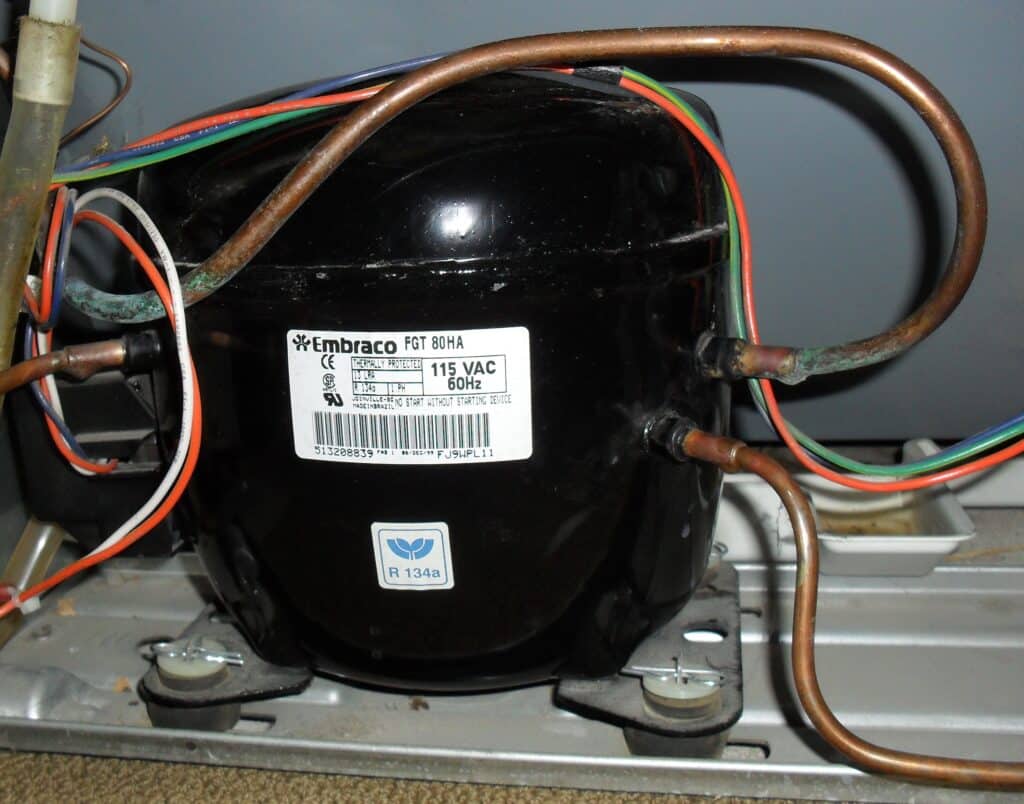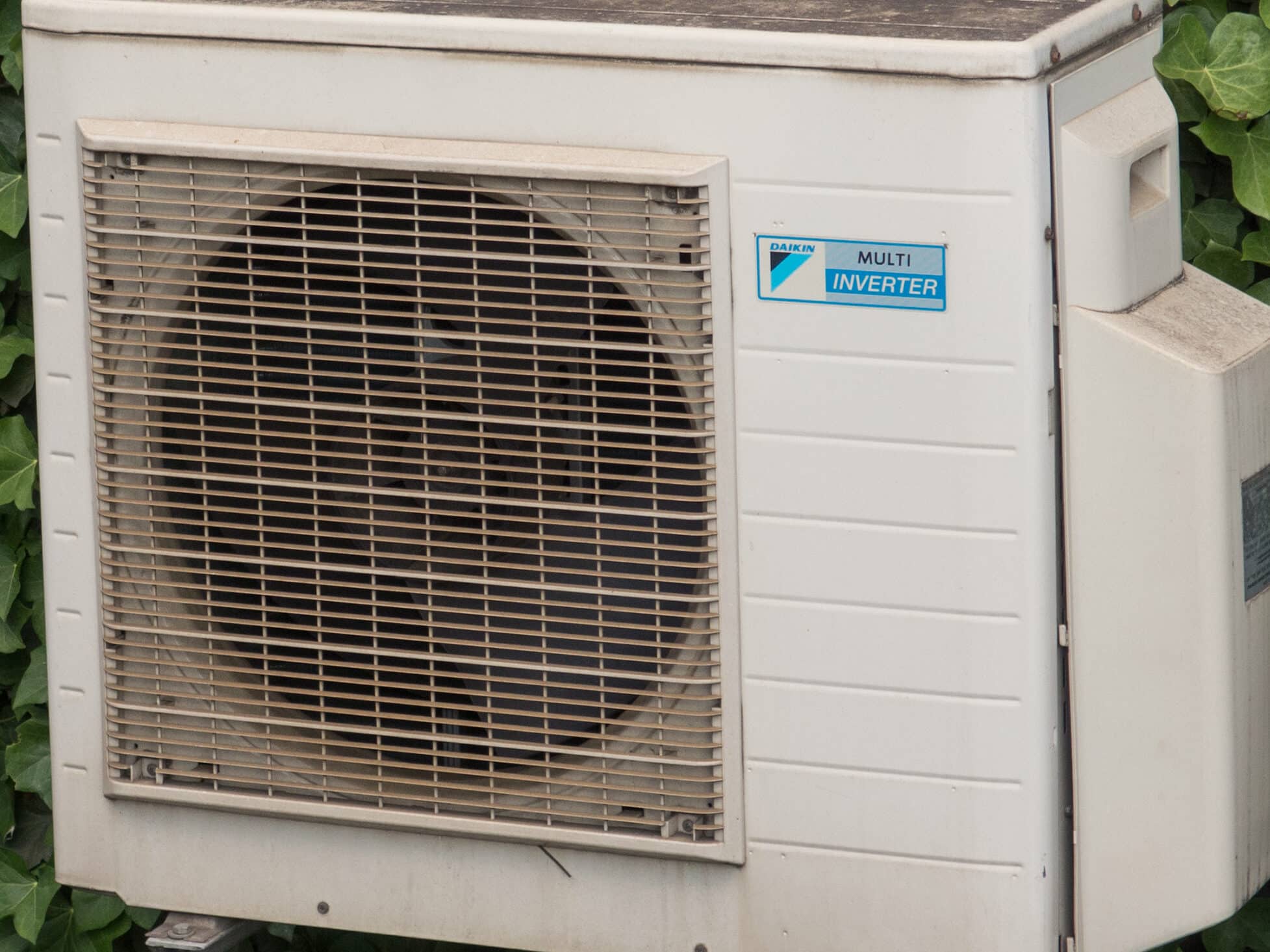Introduction – Replace Compressor Or Whole Unit
If your compressor has failed or shows signs of failing, you will be faced with the problem to replace compressor or whole unit of the AC. An air conditioner compressor is an important part of the cooling system in your home.
It is responsible for circulating the coolant throughout the system, which helps to regulate the temperature in your home.


The compressor is usually separate from the AC unit, although some systems may have both components integrated into one unit.
An AC unit, on the other hand, is the entire cooling system in your home. It consists of several components, including the compressor, condenser, evaporator, and other parts.
When the compressor fails (a very common problem), the AC unit will stop cooling your home. This is because the compressor is responsible for circulating the coolant throughout the system and without it, the coolant can no longer be distributed.
This can be a costly problem, as the entire unit may need to be replaced. However, it is sometimes possible to replace just the compressor itself, which can be a much more cost-effective solution.
Compressor failure is only one of many types of defects that happen to the outside component of the AC.
Basic Factors: ACs Last 10 to 15 Years
Air conditioners typically last between 10 and 15 years on average. Of course, this can vary depending on the type of unit, the quality of the unit, and the amount of maintenance it has received.
The environment in which the unit is located can also have an effect on its lifespan, as units in hot and humid climates may need to be replaced more often.
Basic Factors: Condensers Are Much Cheaper Than Whole ACs
The estimate for cost of new condenser: $800 to $2,800 whereas the estimate for cost of new AC (without ductwork): $3,800 to $7,500.
This means that the condenser is about a quarter to one tenth the cost of replacing the entire AC which is substantial savings. But this savings decision comes with many ifs and buts.
New ACs Are More Efficient – Use 10 Years As The Cut-Off
Replacing an entire AC unit with the newest technology can be more efficient than just replacing the compressor. This is because newer units are designed with more efficient components and are designed to use less energy and run more quietly.
Newer AC units are also designed to be more reliable and are less likely to fail, which can save money in the long run.
When deciding whether to replace an AC compressor or an AC unit, it is important to consider both the cost and the age of the unit. Replacing a compressor can be a more cost-effective solution in the short term, but it may not be the best option in the long run if the age of the unit is taken into account.
If the unit is more than 10 years old, it may be more cost-effective to replace the entire unit with a more efficient, newer model. Additionally, it may also be more reliable and less likely to fail.
Warranty On The Compressor And AC Is 10-12 Years
If the warranty on the compressor is 10-12 years (a very common range), then the right decision process for replacing the compressor vs the whole AC would depend on the age of the unit.
If the unit is more than 10-12 years old, then it may be more cost-effective to replace the entire AC unit with a newer, more efficient model.
However, if the unit is less than 10-12 years old, then replacing the compressor may be the more cost-effective solution. In this case, it is important to consider the cost of replacing the compressor and the availability of parts.
It is important to make sure that the compressor is properly sealed and that all connections are secure.
If the compressor is still under warranty, then the right decision process would depend on the terms of the warranty. Typically, the warranty will cover the cost of parts and labor for a certain period of time.
In this case, it would be best to replace the compressor and take advantage of the warranty coverage. However, if the warranty has expired, then it may be more cost-effective to replace the entire AC unit with a newer, more efficient model.
After 10 Years, The Calculation To Replace Compressor Or Whole Unit Is More Nuanced
If the compressor is just over warranty but the AC is not yet 15 years old, then it can be a difficult choice to decide whether to replace the compressor or the entire AC unit.
In this case, it is important to consider the cost of replacing the compressor and the availability of parts. It is important to make sure that the compressor is properly sealed and that all connections are secure.
If the cost of replacing the compressor is relatively low and the AC unit is still in good condition, then it may be best to replace just the compressor. However, if the cost of replacing the compressor is high and the AC unit is showing signs of wear and tear, then it may be more cost-effective to replace the entire unit with a newer, more efficient model.
ShrinkThatFootprint Decision Guide To Replace Compressor Or Whole Unit
Compressor Under Warranty
If the compressor is still under warranty, then it is best to replace the compressor and take advantage of the warranty coverage. Ask for quotes about the labor cost and consider reviews for quality of services.
Compressor Out Of Warranty But AC Not 12-15 Years Old yet
If the compressor is not longer under warranty, but the AC is not yet 12-15 years old, then it is important to consider the cost of replacing the compressor and the condition of the AC.
If the cost of replacing the compressor is relatively low and the AC unit is in pretty good shape, then it may be best to replace just the compressor. However, if the cost of replacing the compressor is high and the AC unit has other problems, then it may be more cost-effective to replace the entire unit with a newer, more efficient model.
Compressor Out Of Warranty, AC Is Also Over 15 Years Old
If the AC is over 15 years old, then it is important to consider the cost of replacing the condenser and the condition of the AC. If the cost of replacing the condenser is relatively low and the AC unit is in pretty good shape, then it may be best to replace just the condenser.
If the cost of replacing the condenser is high and the AC unit has other problems, then it may be more cost-effective to replace the entire unit with a newer, more efficient model.
Financing and Payment Plans
In 2023, the cost of replacing an AC compressor can vary widely depending on the brand and labor costs. For instance, a Carrier compressor may cost between $450 and $2,000, while a Goodman/Amana compressor could range from $350 to $1,200.
Labor costs typically account for 30% to 50% of the total expense, adding an additional $400 to $1,200 to the bill. It’s also worth noting that most compressors come with a limited warranty lasting five to 10 years, which can significantly reduce the overall cost.
When faced with the decision to replace either the compressor or the entire AC unit, this financial burden can be a pivotal factor. However, many HVAC companies and financial institutions offer specialized financing options that can make this critical home improvement more manageable.
Zero-interest payment plans: these let homeowners to spread the cost of the new compressor or AC unit over a fixed period, often without accruing any interest if paid off within the promotional period.
Deferred interest: for those who need extra time, these financing solutions can be particularly beneficial for those who are caught off guard by a sudden compressor failure or for whom paying the full cost upfront would be financially straining.
Short How-To Guide For Replacing The Compressor
This is not meant to be a comprehensive guide. It’s meant to give you a sense of what the technician will do to replace the compressor so you can judge and estimate the cost quotes better.
1. The process for replacing the condenser only starts with shutting off the power to the unit. Next, the inside of the housing should be cleared of debris to prevent any potential ignition from a blow torch.
2. Once the housing is cleared, the refrigerant needs to be removed from the system. The condenser is coupled to the AC on both the high and low side, so both of these couplings need to be removed with a blow torch.
3. After the couplings have been removed, the power needs to be disconnected from the unit.
4. Once the power is disconnected, the new condenser needs to be lowered into the housing, and new couplings need to be made between the condenser and the high and low side. The new couplings should be made with a torch and should be tight and secure.
5. Finally, the refrigerant needs to be pumped back into the system. It is important to make sure that no foreign matter or air bubbles are introduced into the system during this process. Once the refrigerant has been pumped back in and all connections are secure, the unit should be ready to operate.
Conclusion – Replace Compressor Or Whole Unit
Replacing a compressor can be a cost-effective solution and the repair/installation time is typically much faster than replacing a whole AC.
On the other hand, replacing a whole AC can be more reliable and efficient than replacing individual parts, but it is a more expensive upfront cost and the installation/repair time is longer.
The main factors are the warranty coverage of parts and labor, the cost after consideration of the warranty status, the age of the AC, the state of the AC. Overall, the best course of action depending on the situation.
If the AC is relatively new and the compressor is the only part that needs replacing, then replacing the compressor is likely the best choice. However, if the AC is older and more parts need replacing, then replacing the whole AC may be more cost-effective in the long run.
